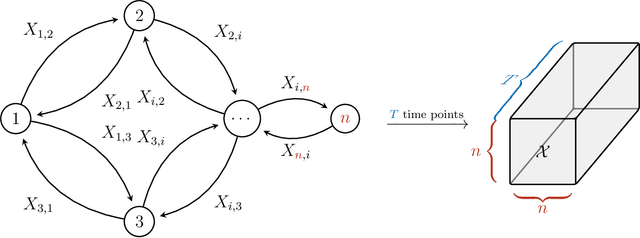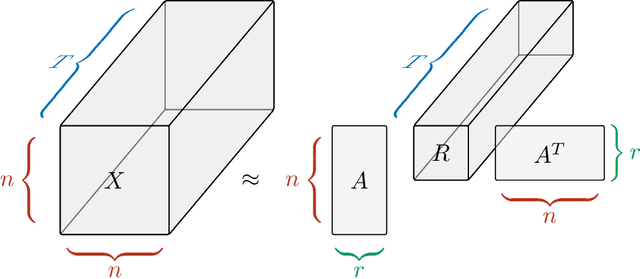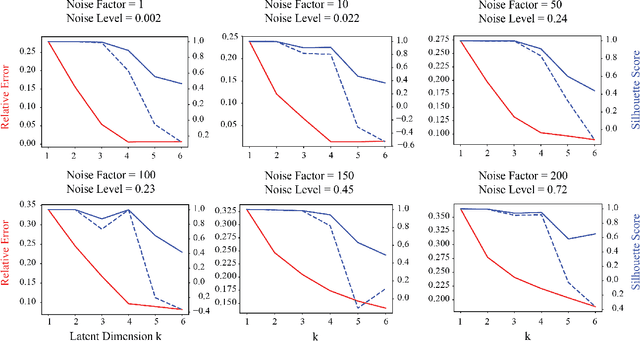Vladimir I. Valtchinov
Determination of Latent Dimensionality in International Trade Flow
Feb 29, 2020



Abstract:Currently, high-dimensional data is ubiquitous in data science, which necessitates the development of techniques to decompose and interpret such multidimensional (aka tensor) datasets. Finding a low dimensional representation of the data, that is, its inherent structure, is one of the approaches that can serve to understand the dynamics of low dimensional latent features hidden in the data. Nonnegative RESCAL is one such technique, particularly well suited to analyze self-relational data, such as dynamic networks found in international trade flows. Nonnegative RESCAL computes a low dimensional tensor representation by finding the latent space containing multiple modalities. Estimating the dimensionality of this latent space is crucial for extracting meaningful latent features. Here, to determine the dimensionality of the latent space with nonnegative RESCAL, we propose a latent dimension determination method which is based on clustering of the solutions of multiple realizations of nonnegative RESCAL decompositions. We demonstrate the performance of our model selection method on synthetic data and then we apply our method to decompose a network of international trade flows data from International Monetary Fund and validate the resulting features against empirical facts from economic literature.
 Add to Chrome
Add to Chrome Add to Firefox
Add to Firefox Add to Edge
Add to Edge